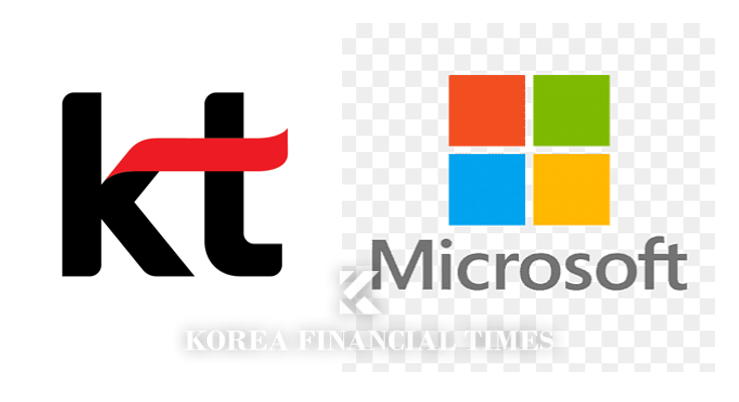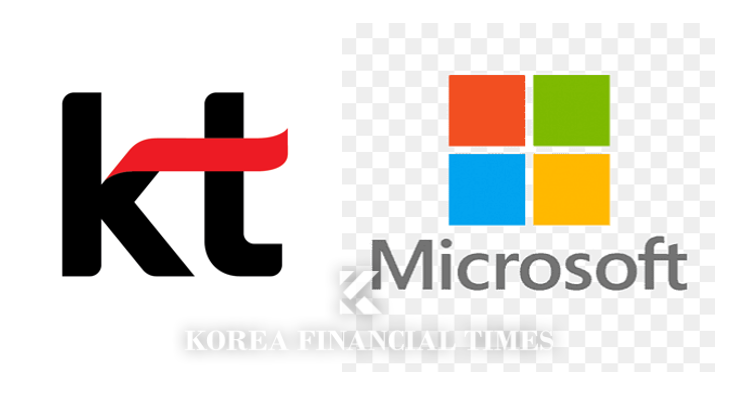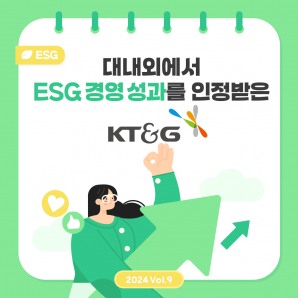KT announced on the 27th (local time) that it signed a five-year, multi-trillion-dollar strategic partnership for business cooperation and capacity sharing in the AI, cloud, and IT fields at Microsoft's headquarters in Redmond, Washington, USA. Under the partnership, KT CEO Young-seop Kim and MS CEO and Chairman of the Board Satya Nadella plan to launch a full-scale cooperation system to secure Korea's global AI and cloud leadership.
Over the next 5 years, the two companies will work together to: develop Korean-specific AI solutions; develop Korean cloud services; create new business opportunities through the establishment of an AX specialist; strengthen AI R&D capabilities across the Korean technology ecosystem; conduct joint research and foster tens of thousands of AI professionals in Korea.
In particular, KT and its cloud subsidiary KT Cloud announced on the 30th that they will supply infrastructure services such as networks and data centers to MS for this cooperation. According to KT, the data center service will be provided for 15 years, with infrastructure worth about $450 million (approximately KRW 589.6 billion).
Through this partnership, KT will jointly develop AI models optimized for Korean culture and industry by utilizing MS AI ecosystem models such as GPT-4o and Phi. By introducing services based on this, it will be able to provide global AI solutions not only to general customers but also to corporate customers. KT will also incorporate MS's conversational AI Copilot into its services to provide a more differentiated customer experience.
“Customers will enjoy a higher level of AI experience in their daily lives, including customized AI search and personalized services based on co-pilots,” said a KT representative. ”We will develop Korean co-pilots targeting various industries such as education, healthcare, and mobility to enhance our service levels and create new business opportunities.”

KT and Microsoft signed a five-year strategic partnership to collaborate on AI, cloud and IT at Microsoft's headquarters in Redmond, Washington, U.S., on 27th. Pictured here are KT CEO Kim Young-seop (left) and Microsoft CEO and Chairman of the Board Satya Nadella (right) shaking hands at the signing ceremony. / Photo: KT
This is due to the fact that foreign cloud service providers (CSPs) will be allowed to enter the public and financial sectors from next year. According to the National Intelligence Service's recently released 'Roadmap for Improving National Network Security Policy', foreign CSPs with appropriate capabilities will be able to operate in the public and financial sectors from next year, depending on the importance and security level of their work.
The domestic cloud market is dominated by foreign companies like Amazon Web Services, Microsoft, and Google, which hold a 90% market share in the private sector. In contrast, domestic CSPs (Cloud Service Providers) such as KT, Naver, and NHN are gradually building competitiveness against overseas CSPs, based on their market share (over 80%) in the public and financial sectors. From Microsoft’s perspective, the collaboration with KT allows it to expand its influence into the domestic public sector.
As a result, there are growing concerns within the industry that this could pose a long-term threat to the survival of domestic CSPs. KT also seemed conscious of this, emphasizing Microsoft's security capabilities and business prowess during the collaboration announcement. It has been reported that officials from the National Intelligence Service were also present during KT CEO Kim Young-seop's visit to Microsoft's headquarters.
A KT official explained, “The cloud services developed by the two companies ensure robust security while complying with domestic data protection and regulatory requirements. At the same time, they offer versatility, allowing for the rapid and extensive use of the latest AI and cloud services."
The official added, “Microsoft has extensive experience in public sector collaborations, not just in the U.S. but also in advanced European countries such as Switzerland, Italy, and Belgium. We plan to share this expertise and know-how with domestic experts, helping the Korean security public cloud broaden the foundation of Korea’s AI and cloud market.”
Apart from security concerns, there are still worries about the relatively lower competitiveness of domestic CSPs. In the long term, they could become dependent on the technology and pricing policies of global big tech companies. Growing unease about KT Cloud, KT’s cloud subsidiary, scaling down its business reflects this. Some suggest that KT Cloud, despite being a CSP, could be limited to merely providing infrastructure such as data centers to Microsoft.
Additionally, Microsoft raised cloud product subscription fees by 8% for domestic companies in February. Before this, in 2022, it increased the prices of business software like Microsoft 365 and Office 365 by as much as 8% to 25%. As a result, companies in the cloud market are vulnerable to cost fluctuations due to Microsoft's pricing policies, which can affect operating expenses.
Kim JaeHun (rlqm93@fntimes.com)

































![신사업 사활건 포스코퓨처엠…사외이사진 面面보니 알겠네 [2024 이사회톺아보기]](https://cfnimage.commutil.kr/phpwas/restmb_setimgmake.php?pp=006&w=69&h=45&m=5&simg=2024092923092300723dd55077bc25812315232.jpg&nmt=18)

![12개월 최고 연 4.20%…대한·바로저축은행 '정기예금'[이주의 저축은행 예금금리-9월 5주]](https://cfnimage.commutil.kr/phpwas/restmb_setimgmake.php?pp=006&w=69&h=45&m=5&simg=2024092921425505312957e88cdd5211234180145.jpg&nmt=18)
![회사 헐값 결정한 두산밥캣 이사진…사외이사 대부분 두산과 오랜 인연 [2024 이사회 톺아보기]](https://cfnimage.commutil.kr/phpwas/restmb_setimgmake.php?pp=006&w=69&h=45&m=5&simg=2024092923173105003dd55077bc25812315232.jpg&nmt=18)
![12개월 최고 연 3.42%…농협·수협銀 예금 상품 [이주의 은행 예금금리-9월 5주]](https://cfnimage.commutil.kr/phpwas/restmb_setimgmake.php?pp=006&w=69&h=45&m=5&simg=2024092521073903618237391cf8611513838246.jpg&nmt=18)
![[DCM] 이마트, 신세계건설 공개매수 추진…그룹 ‘웃고’ 건설 주주는 ‘울고’](https://cfnimage.commutil.kr/phpwas/restmb_setimgmake.php?pp=006&w=69&h=45&m=5&simg=2024093001175908974a837df649411612622953.jpg&nmt=18)














![[카드뉴스] 국립생태원과 함께 환경보호 활동 강화하는 KT&G](https://cfnimage.commutil.kr/phpwas/restmb_setimgmake.php?pp=006&w=298&h=298&m=1&simg=202403221529138957c1c16452b0175114235199_0.png&nmt=18)
![[카드뉴스] 신생아 특례 대출 조건, 한도, 금리, 신청방법 등 총정리...연 1%대, 최대 5억](https://cfnimage.commutil.kr/phpwas/restmb_setimgmake.php?pp=006&w=298&h=298&m=1&simg=20240131105228940de68fcbb35175114235199_0.jpg&nmt=18)
![[카드뉴스] 어닝시즌은 ‘실적발표기간’으로](https://cfnimage.commutil.kr/phpwas/restmb_setimgmake.php?pp=006&w=298&h=298&m=1&simg=202311301105084674de68fcbb35175114235199_0.png&nmt=18)
![[신간] 성장이 멈춘 시대의 투자법](https://cfnimage.commutil.kr/phpwas/restmb_setimgmake.php?pp=006&w=81&h=123&m=5&simg=2024082109281507249f8caa4a5ce175114235199.jpg&nmt=18)
![[신간] 레벨업 강한 커리어](https://cfnimage.commutil.kr/phpwas/restmb_setimgmake.php?pp=006&w=81&h=123&m=5&simg=2024042608050907026f8caa4a5ce175114235199.jpg&nmt=18)
![[서평] 추세 매매의 대가들...추세추종 투자전략의 대가 14인 인터뷰](https://cfnimage.commutil.kr/phpwas/restmb_setimgmake.php?pp=006&w=81&h=123&m=5&simg=2023102410444004986c1c16452b0175114235199.jpg&nmt=18)

![[신간] '쉬워요 맞춤법!' 출간... 맞춤법 틀려 지적받은 적 있나요?](https://cfnimage.commutil.kr/phpwas/restmb_setimgmake.php?pp=006&w=81&h=123&m=5&simg=2024050301332807448c1c16452b018221117338.jpg&nmt=18)









